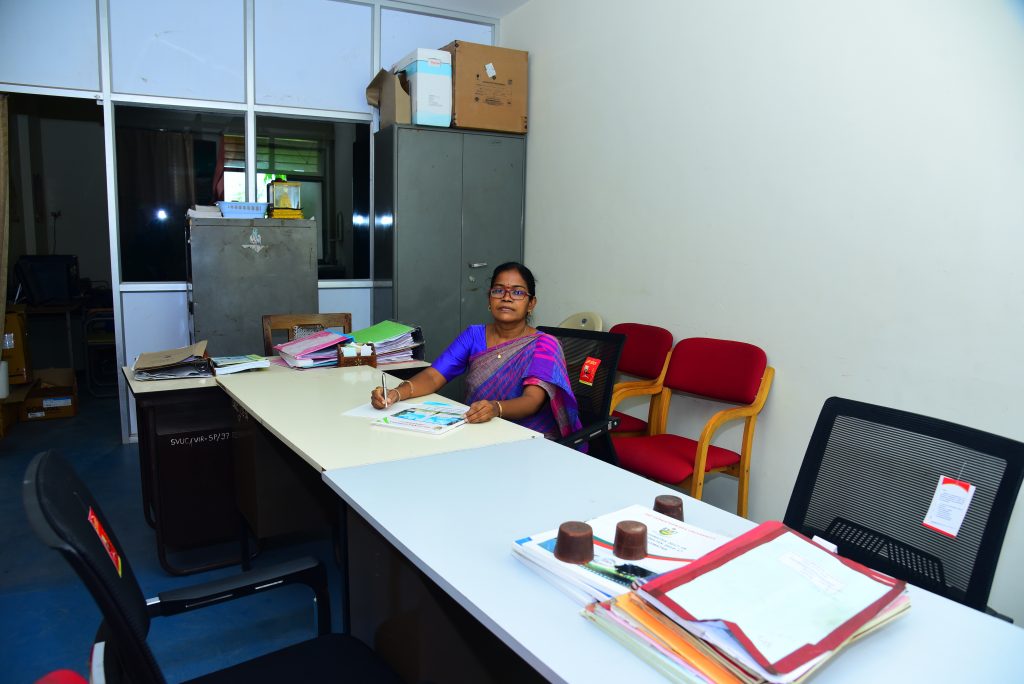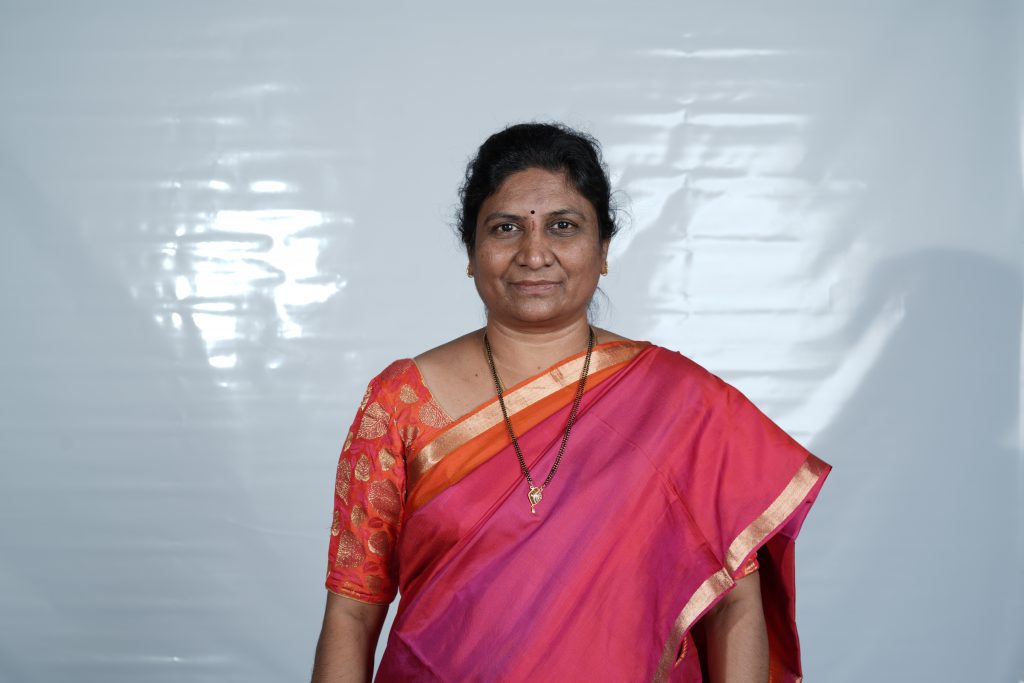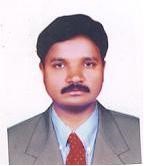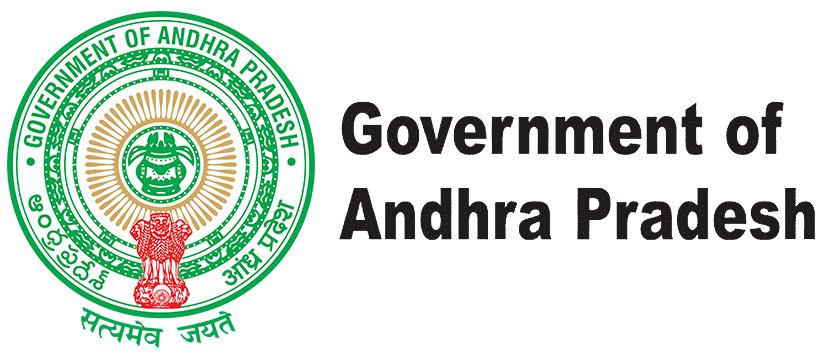Virology

About Virology Department
• The Virology Department at SV University was recognized by UGC in 1987 and established in 1988 with Prof. M.V. Nayudu as founder Head and Prof. P. Sreenivasulu as reader. This is the first of its kind and unique Dept. among all the state Universities in India to offer M.Sc. and Ph. D., programs in Virology by covering microbial, plant, animal and human viruses. The Virology department is the first department to implement semester system (1989 onwards) in the University.
• Since inception, the Department of Virology has been consistently ranked as one of the best departments in Sri Venkateswara University and it provides a stimulating research environment for a highly interactive group of investigators that covers high quality research on the biology, transmission, genetics, pathogenesis and diagnosis and management of viruses that cause diseases to microbes, plants, animals and human beings.
Vision:
To serve as a “center for academic excellence” by assuring systematic and focussed teaching and research in the frontier areas of Virology and to provide a conducive environment to the students for learning and quality training to promote professional development and individual well-being.
Mission:
1. Providing quality post graduate education of high standards in Virology and achieving excellence in teaching and research.
2. Introducing students to basic and advanced concepts/technologies/methods related to identification, characterization, detection and management of economically important, emerging and reemerging viruses infecting microbes, plants, animals and humans along with wide practical frameworks that can provide quality training of international standards and employability opportunities.
3. Pursuing cutting edge research in the key areas of Virology and Microbiological Sciences through sponsored research projects.
4. Establishing national/international collaborations with premier research institutes/universities for advancing scientific knowledge in contemporary areas of Virology and interdisciplinary areas of microbial sciences.
5. Preparing students to have qualities such as honesty, integrity, carefulness, courage, resilience, self-discipline, openness, innovative thinking and determination to keep going forward, which make them ethically strong and to contribute to the betterment of society and human kind.
About the M. Sc. Program:
The unique M.Sc. Program of Virology at Sri Venkateshwara University College of Sciences (SVUCS), Tirupati started in 1987, is committed to achieve excellence in education, research, and extension through systematic and focused teaching and hands-on-practical training in contemporary areas of Virology. The program brings together a variety of researchers as faculty members, who made significant contributions in their specializations and are working together for a common goal of identification, characterization, diagnosis, and management of viruses. The program is strengthened by various research projects, sophisticated instrumentation to conduct advanced research and periodical update of the curriculum. The platform aims at equipping the students with necessary scientific skills for Virology related careers, in research, industry and higher education sectors. The students in this program acquire wide knowledge, critical thinking skills and experience in conducting advanced strategic research and entrepreneurship in core Virology and other major interdisciplinary areas. The curriculum of M.Sc. Virology program is developed keeping in view of the student centric learning practices, which are entirely outcome-oriented and curiosity-driven. Emphasis will be given to train students in theoretical concepts and practical hands-on experience to face the challenges that are recurrent in the field of Virology and to foster employability, responsibility, and lifelong learning, which is the need of the hour to make India’s emergence as a global leader in innovation and manufacturing of pharma and biotech products.
The M.Sc. Virology program curriculum framework focuses on pragmatist approach whereby application of theoretical concepts is taught with substantial coverage of practical and field-based studies. The curriculum is designed to educate the students with the basic and advanced concepts of Virology and other major interdisciplinary disciplines by using modern pedagogical tools and concepts such as e-learning platforms, as well as to promote and develop skills and competencies that have enduring value beyond the classroom. While designing these frameworks, emphasis is given on the objectively measurable teaching-learning outcomes to ensure employability of the students. The Program has two academic years with four semesters.
M.SC. Virology Seats Availability:
• 18 Regular seats for local and non-local students
• 6 seats - self-finance
Eligibility:
• B. Sc., degree with any other two subjects in life sciences such as Microbiology, Biochemistry, Botany, Zoology and Lab Technology
• Need to write APSCHE Common PG Entrance Test, PGCET and compete on the merit basis
• Ph.D., Program - M. Sc., Virology students are eligible to write APSCHE-RCET in Virology for joining Full time Ph.D., in Virology and other students from life sciences are eligible to write Applied Life Sciences test to join PhD program in Virology and Dept. of Virology faculty members can guide interdisciplinary students from Microbiology and Biotechnology Programs.
Faculty Details
Virology faculty members have good experience in teaching as well as in research in the contemporary areas of Virology.
| S.No. | Name | Designation |
|---|
| 1. | Dr. M. Hema | Professor & B.O.S. Chairman |
| 2. | Dr. M. Charitha Devi | Professor |
| 3. | Dr. R. Ranjani | Associate Professor & Head |
| 4. | Dr. G. Narasimha | Associate Professor |
Curriculum Activities:
Teaching: Semester system, Choice based credit system (CBCS), E class room facility, weekly seminars, Internal assessment test, Assignments, group discussions, personality development courses, syllabus revision once in two years as per the modern trends, cafeteria approach to the common core subjects by inviting visiting scientists and guest faculty.
Research:
Characterization of various plant, animal and human viruses and development of Immuno and molecular diagnostics, epidemiological investigations, public awareness programmes, Microbial interactions, Microbial enzymes and Nanomaterials, Antiviral and anticancer research by using plant products.
Future prospects for Virology students:
• Virology students have wide chances to get placed in clinical laboratories, pharmaceutical industries, national and international academic and research institutions.
• Virology post graduate students has good placement record in national institutes and hospitals both at Govt./private sector such as AIIMS, NII, NIV, CCMB, Bharath Biotech,Shantha Biotech, Biocon, Nagarjuna Biotech, Mahyco, Arabindo pharma, SVIMS, Ankura hospitals etc.
•Alumni of Virology settled in good positions in national and international academic, research institutions and industries such as Dr. G. Kiranmai, The Wistar Institute, PA, USA; Prof. M. Hema, Virology, SVU, Tirupati; Dr. M. Venkatramana, Biotechnology, HCU, Hyderabad; Dr. P. Lava Kumar, IITA, Nigeria; Dr. B. Ramesh, Genetics and Genomics, YVU,Kadapa; Dr. K. Venkata Subbaiah, Research Scientist, PURSE Centre, SV University, Tirupati, Dr.B.V.Subbaraju, R&D Head Biocon, Bangalore, Dr.P.V.CherishBabu, Hyderabad, Dr.D. Dhanvanthri, Senior Scientist, Pfizer, USA, Dr.K. Kishore, Research Scientist, DuPont, USA.
Key Achievements:
• Epidemiology, characterization and development of diagnostics for different microbial, plant, animal and human viruses and strategies for their management.
• Isolation of antiviral agents from medicinal plants and actinomycetes, drug designing for human viral diseases.
• Diagnostic kits (e.g., Chikungunya) developed by the faculty are being used by local hospitals (SV Medical College, SVIMS and other private hospitals).
• The Virology faculty has developed recombinant protein based viral diagnostic kits (e.g., ELISA, dot immunobinding assay) to detect commercially important plant viruses (e.g., CMV, BBTV, SStMV, aroid viruses, CYMV, MStV, PRSV) by the adjacent universities and polyclonal antibodies raised against the recombinant viral structural and non-structural proteins were maintained as repository and freely supplied to the users upon request.
• Epitope presentation on virus-like particles and generation of novel vaccines and diagnostics
• Engineered virus nanoparticles (VNPs) and virus-like particles (VLPs) are being developed as imaging agents and nanocarriers (for targeted drug delivery) which has potential applications in Biomedicine and industry.
• Conducted exhibitions, campaigns to create awareness about upcoming virus problems to the society (emerging and re-emerging viruses such as SARS, EBOLA, SWINE FLU, HINI etc)..
• Several prominent experts in Virology from India and abroad have visited the Department viz: Dr. J.W. Demaski, USA, Dr. Bhatia, DBT; Prof. S.S. Fraasser, UK; Prof. M.A. Mayo, Prof. G. Padmanabhan, IISc; Dr. D.V.R. Reddy, ICRISAT; Prof. M.V. Rao, VC APAU; Dr. Karl Maramorosch, USA; Dr. Edward Simon, USA; Dr. Y.R. Sarma, NSRC, Kerala and Dr. Chris Anthony, UK
• Several students of Virology have qualified with GATE, ICMR, UGC fellowships. DST INSPIRE and joined in the National Research Institutes like AIIMS, TIFR, ICRISAT, IISc., NIMHANS, CCMB, NII and NBRC.
• So far 3 M.Phil., and 42 Ph.D., degrees were awarded and currently 3 research students are working in the Dept.
•During the last three decades, more than twenty major research projects were completed and 400+ research papers / reviews / bulletins are in account apart from bringing out 10 books and 6 lab manuals
•The Department has organized 8 national training courses and 14 national and 2 international seminars since its inception.
•Department made several MoUs and made commendable progress through inter departmental and institutional collaboration at local, National and International levels.
Infrastructure and Laboratory Facilities:
• The department has well-equipped two teaching cum research laboratories for post-graduate students, five specialized faculty/research laboratories, centralized computer & networking facility, departmental Library, a common instrumentation facility and a culture room facility for Doctoral and post-doctoral students. The department is undertaking several R&D projects sponsored by various National and International funding agencies including UGC-Non SAP, DST-FIST, DFID, Erasmus-Mundus European programme and were sanctioned to Virology Dept. external funding agencies such as DBT, DST, CSIR, DAE-BRNS and ICMR. The equipments available in the department include UV-Visible Spectrophotometers, Refrigerated centrifuge, Ultra deep freezer, Incubator shaker, FPLC, HPLC, laboratory Fermenter, Fluorescent Microscope, Sonicator, Transilluminator, microcentrifuge, Electroporator, ELISA reader, lyophilizer, Millipore water purification system, Thermal Cyclers, Gel documentation system, Class IIA Biosafety cabinet, Rotary evaporator, Hybridization oven, CO2 Incubator and other minor equipments.
Library:
The department has a common library with 643 national and international standard books and back volumes/journals related to Virology and with subscription of 3 national journals.










 FLYING STARS
FLYING STARS